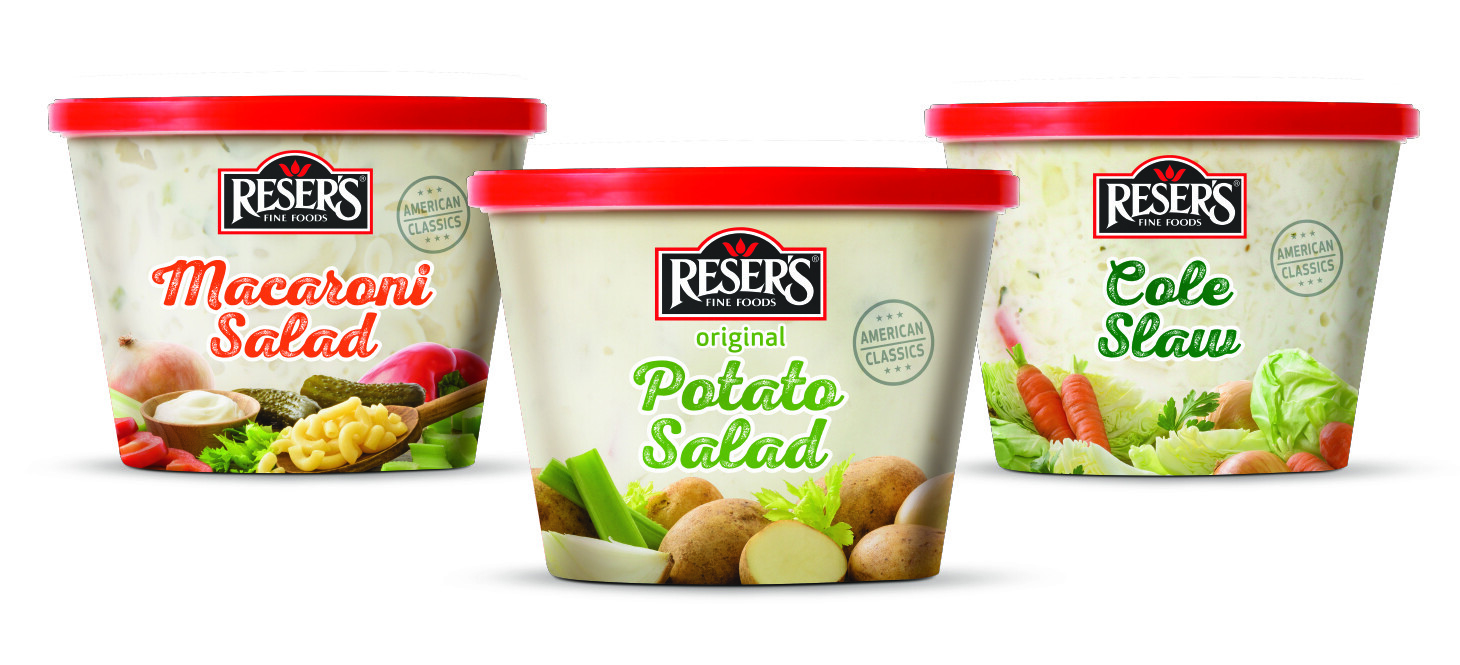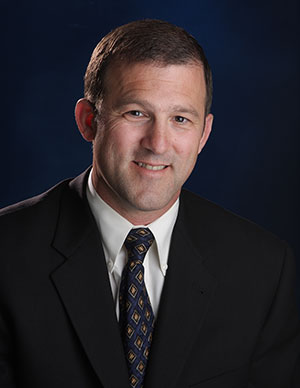News, articles, and interesting stuff from the College of Business
“Do Millennials Eat Potato Salad?”and Other Fine Questions and Innovative Answers with Mark Reser


As the third-generation CEO and President of Reser’s Fine Foods — the business started by his grandparents as a simple way to pay the bills — Mark Reser, ’88, has continued a family tradition of business leadership that started more than 65 years ago.
Among goliaths such as General Mills, Hormel and Kraft, Reser’s Fine Foods has moved into rare territory in the food industry as a company with more than $1 billion in annual sales. This benchmark, achieved during Mark’s tenure, finishes a chapter of his father’s legacy. Al Reser, ’60, moved the company from a $300,000 operation to a $700,000,000 operation over five decades.
The College of Business honors Mark with the Distinguished Business and Innovative Professional award, to be conveyed at the OSU Alumni Association’s Portland Business Roundtable Event on April 4, where he gives the keynote address. We talked to Mark ahead of this event about innovation in the food industry.
COB: Your accomplishments at Reser’s Fine Foods include moving the company past the billion-dollar sales mark, with a growth rate that any CEO would envy. What has kept your business growing?
MR: Innovation has always played a key role, as well as being responsive. We always pay attention to what is going on in the market and to consumer needs and demands in the five categories in which we compete. Some people may view us as the potato salad guys, and yes, that’s a really important core category! But we also compete in side dishes, specialty kits, and dips and dressings, as well as Mexican foods and fruit.
It all boils down to responsiveness and innovation … and staying really close to our customers. We do a lot of innovation and customization for many customers. Our brands represent 60 percent of our business, but the other 40 percent is customization and private label work that we do for both food service and retail customers.
COB: It seems like pretty exciting times for the food industry. How does a company stay responsive to everything from the “eat local” movement, to the home-delivered meal kit to the entrance of Amazon into the brick-and-mortar grocery space?
MR: It’s an extremely exciting time in the industry. Not only are we seeing major activity in the arena of food delivery, but the lines are blurring between the channels, whether they are traditional groceries and big box stores, restaurants, or take-out. Consumers are now going to grocery stores to sit down and have lunch or dinner. You’re seeing meal components coming in kits at the grocery store or delivered to your home.
We compete in all channels. We’re in food service; we have national food service accounts; we reach all box stores, traditional retail, as well as European-model discount grocery chains.
For us, the underlying driver in all of this is that we have to just stay focused on the consumer and continue to deliver what the consumer wants, which is fresh, delicious, convenient food.
COB: Where is the space for the next disruptive idea; what are the opportunities?
MR: There’s so much going on that there isn’t just one egg we want to crack. We see opportunities in a lot of areas, and we are making decisions that are right for us and our consumers as things unfold. Thankfully we are positioned to be able support and compete in many areas at once.
It’s a very dynamic time in the food business and challenging to some degree. There is always competition — that’s true of all industries. We just have to recognize the opportunities that make the most sense for us. For example, we’re now selling our products online and are watching that area of development very closely.
COB: You are a next-generation family business, but at the same time you face the challenges of next-generation consumers: Food chain-of-custody awareness, vegans, GMO-free, gluten free, you-name-it free, how does a large operation respond to this? Do Millennials eat potato salad?
MR: First, the most important thing is that you’ve got to listen to consumers. We work really hard to Most importantly, we listen to our consumers. We work really hard to understand what is important to them, and then figure out how to best meet those needs.
Yes, we are large, but at the same time we are very flexible. That commitment to the consumer really keeps us on our toes. And yes, there are a lot of millennials out there who really do eat potato salad. Which is good news!
To be sure, we’ve introduced product lines that respond to changing consumer needs. We’ve worked to clean up our labels across all product categories. We have organic, GMO-free, and gluten-free tortillas. We’ve removed high-fructose corn syrup, artificial colors and artificial flavors in nearly all of our products. As consumer needs evolve, so do we.
COB: How do these processes for adjustment work; how do you define the new products?
MR: Once we understand the consumer need, we work to make the right adjustments. Some of these adjustments create big challenges, but we find a way to make it work. Again, it’s the listening, and understanding the trends. And being flexible so we can make those adjustments.
We introduce more than 300 items a year. That’s almost one a day. That doesn’t mean that every day there is a new item launching. It’s a continuous process. We’ll have 30-50 things in the queue at any given time. At the same time, if we introduced all those items without refining our existing mix, it would be extremely difficult to remain efficient at our plants, so we also clean the cupboards regularly to eliminate items that are not performing.
The discipline of constantly introducing new items is critical for us. For example, last year our number one selling item for the company was one that didn’t even exist 8 or 9 years ago.
COB: Hitting the $1 billion mark – what did it take?
MR: A lot of little things! We had a couple of acquisitions, we launched lots of new products and a new category. But we also remained focused on growing our core categories and building our brands. For example, we took our successful side dish line to the next level by creating sides that taste like they were baked in the oven but only take minutes in the microwave. So we now offer not only delicious mac & cheese, or mashed potatoes, but also baked scalloped potatoes, which are a challenge to make at home. We’re working on a new line of roasted potatoes. Innovation will always be an important part of how we grow, while maintaining that commitment to producing great-tasting, convenient, quality food for our consumers.
COB: What’s been the biggest challenge leading Reser’s Fine Foods?
MR: So much has changed over the past ten years, and we’ve had challenges every year. We just work to find the opportunity in those challenges, and turn them into successes. I truly believe that the teamwork, creativity, agility, and problem-solving that every challenge requires help us continue to grow and be successful.
We are committed to staying focused on the cornerstones that have been the foundation of our business since the beginning. Staying close to those cornerstones is critical to our success. Here they are:
– Continue to grow
– Take care of the customer
– Have an unwavering commitment to the quality and safety of our food
– Take care of our employees
– Stay competitive
COB: What next for Reser’s?
MR: The last three or four years we’ve focused on refinements, and made strategic moves that really set the stage for that next big phase of growth. We’ve greenfielded three new manufacturing plants and a new distribution center over the last six years. The industry will continue to be dynamic because the consumer will continue to evolve, and this reinvestment into the business sets us up for the kind of flexibility we need to grow for years to come.